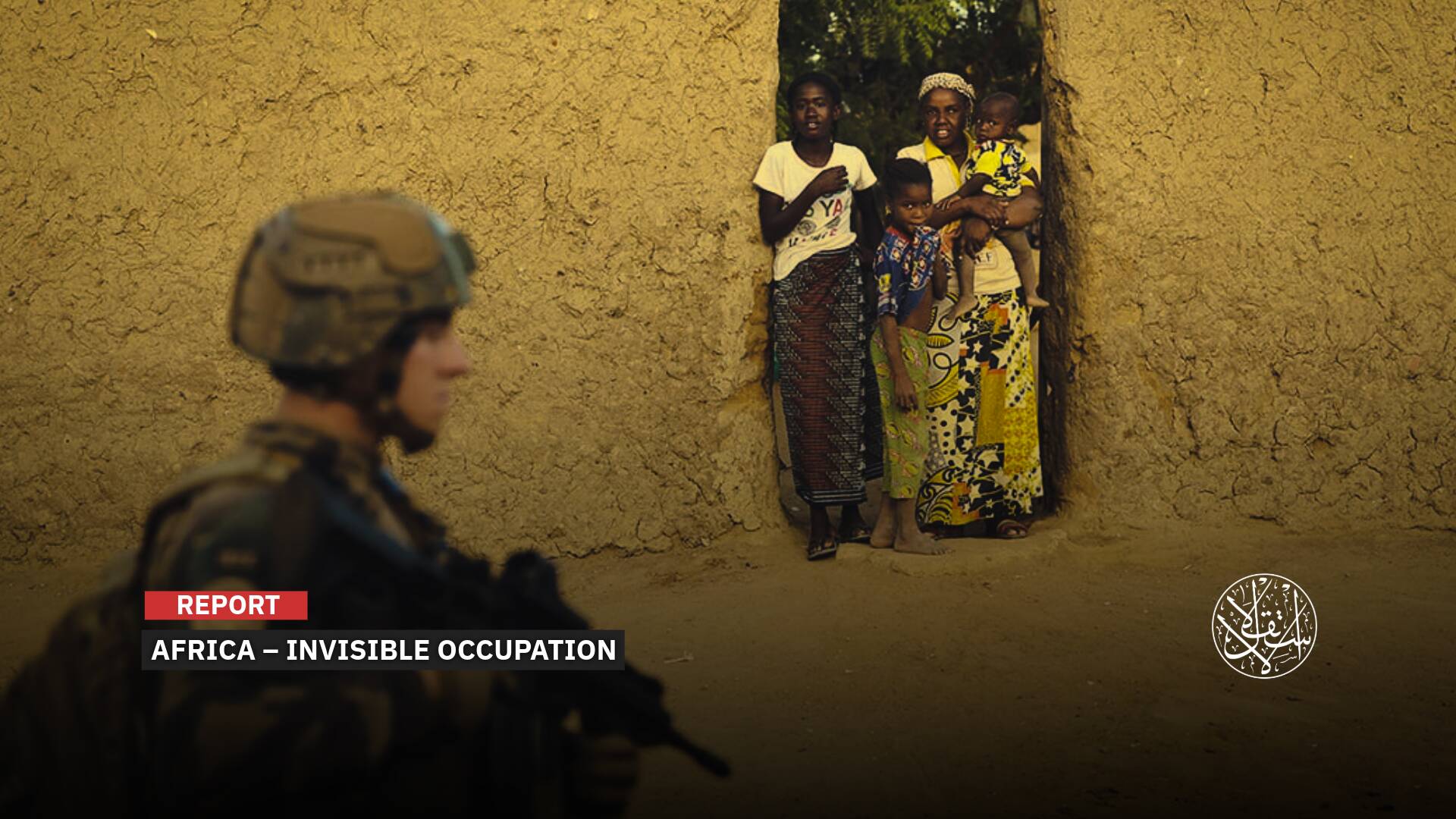After the Solingen Attack: Is Germany Rethinking Its Refugee Policy?

Under the new measures, deportations from Germany will be carried out more swiftly.
The attack in Solingen has thrown open the door for the German government to impose new laws on asylum policy in this European country, which hosts the largest number of irregular migrants in the world.
Three people were killed and eight others injured on August 23, 2024, when a 26-year-old Syrian asylum seeker, whose application had been rejected, attacked a festival in celebration of the founding of the city of Solingen in western Germany.
ISIS claimed responsibility for the attack, and the young man admitted his involvement and allegiance to the organization.
According to the Dublin Regulations, the Syrian, who arrived in Germany in 2022, could have been transferred to Bulgaria the following year, but the deportation never took place.

New Measures
German Chancellor Olaf Scholz has promised to implement new measures to prevent irregular migration but ruled out suspending asylum rights.
This comes amid calls from opposition parties for a radical overhaul of immigration policy.
“The individual right to asylum will remain in place. This is in our constitution, and nobody can get my support to challenge this,” Scholz said late Tuesday after the main opposition Christian Democrats (CDU) proposed a de facto freeze on accepting refugees.
He announced that police would conduct more surveillance on the province's land borders and enforce stricter measures for deporting violent offenders.
However, he did not support the opposition's call for a blanket refusal of all asylum seekers from Syria and Afghanistan.
“I would like to clearly state this: We will not violate the international treaties signed by Germany, we will abide by the law of the European Union, and of course our own constitution,” the Social Democrat politician told public broadcaster ZDF, adding that measures against illegal migrants and violent offenders should not harm refugees, who truly need protection in Germany.

However, the coalition government has come under pressure to take a tougher stance on migration following the Solingen attack and the stabbing of a German police officer by an Afghan national in June 2024.
The Solingen incident exacerbated political disagreements over asylum and deportation rules, particularly as the perpetrator was a Syrian asylum seeker whom the government had failed to deport after his asylum application was rejected.
On August 29, 2024, the German government announced a proposed package of security measures, tightening asylum and residence laws to regulate the handling of those who commit crimes involving a weapon or dangerous object.
The federal government agreed to revoke benefits for certain asylum seekers during a conference attended by Interior Minister Nancy Faeser, Justice Minister Marco Buschmann, and State Secretary in the Federal Ministry for Economic Affairs, Anja Hajduk.
The federal government also aims to cut state cash benefits for some asylum seekers.
Faeser explained that this concerns migrants for whom, according to Dublin regulations, another European country is responsible and has agreed to readmit them.
According to Buschmann, the goal is to pressure those affected by the measures to either contact the authorities or leave the country voluntarily; those who travel to their homeland without “compelling reasons,” for example, for a vacation, should lose their right to protection in Germany.
“Ukrainians visiting their military partners in their homeland are exempt from this regulation,” as quoted by Tagesschaud.

Accelerating Deportation
The new measures in Germany include cutting government cash benefits for certain asylum seekers, specifically those with fingerprints registered in other European countries, effectively subjecting them to the Dublin Regulation.
This system for refugees was established under the Dublin Convention, which was adopted on June 15, 1990, and subsequently signed by several European Union countries in the Irish capital.
These countries include Austria, Belgium, Bulgaria, Croatia, Cyprus, the Czech Republic, Denmark, Estonia, Finland, France, Germany, the Netherlands, Hungary, Iceland, Ireland, Italy, Latvia, Liechtenstein, Lithuania, Luxembourg, Malta, Norway, Poland, Portugal, Romania, Slovakia, Slovenia, Spain, Sweden, and Switzerland.
Under the Dublin Regulation, fingerprints of any asylum seeker are taken in the first country they enter—among the signatory states—and entered into a shared database.
This allows authorities to determine whether the individual has applied for asylum in another European country.
If they have, the country where they applied second is deemed not responsible for their asylum request, and they are returned to the first country where their fingerprints were taken.
In light of the shock Germany experienced, Chancellor Olaf Scholz has created a task force on migration in the country.
According to Scholz, the group will include, among others, representatives from the CDU, the largest opposition faction, as well as the federal states. The committee will discuss the government’s package of measures.
However, individual initiatives, such as cutting benefits for certain asylum seekers, have faced early criticism.
The refugee organization Pro Asyl described CDU leader Christian Lindner’s plan to reduce asylum benefits as unconstitutional.
The organization told Agence France-Presse (AFP) that “the Federal Constitutional Court has clearly stated that social benefits cannot be canceled or reduced arbitrarily for alleged deterrent effects,” as quoted by Tagesschau.
Conversely, the German government wants to implement a broad range of measures to prevent future attacks involving foreign nationals who may become radicalized or disillusioned due to their failure to secure asylum.
Under the new measures, deportations will be carried out more swiftly, especially since supporters of the measures linked the failure to deport the Solingen attacker to Bulgaria with the deaths of three people.
German Vice Chancellor Robert Habeck stated that the suspect was not known to security services as a dangerous extremist.
According to German Justice Minister Marco Buschmann, cutting social benefits for those subject to the Dublin Regulation would pressure them, as they would no longer have access to government cash and would only receive food and shelter, INFO MIGRANTS reported.
For example, if an asylum seeker first arrived in Greece, was registered there, but later moved to Germany and remained despite being ordered to return to the first country under Dublin rules, they would no longer receive any financial assistance.

Reducing Benefits
In the European Union's most populous country, law enforcement authorities have now been granted permission to use biometric data from publicly available online sources for facial recognition to identify suspects.
Germany welcomed over one million asylum seekers in 2015 and 2016 at the height of Europe’s migrant crisis.
This deeply divisive influx significantly boosted the popularity of the Alternative for Germany (AfD) party.
Migration has long been a fiercely debated issue in Germany, with Chancellor Olaf Scholz’s Social Democratic Party typically advocating for a more open immigration policy.
However, by reducing benefits for Dublin cases, the coalition government hopes to lower migration numbers.
“According to the German government, only around 3,500 of the 25,000 asylum seekers who were obliged to apply for asylum in another member state were actually transferred there from Germany in the first half of 2024. The Solingen suspect, for example, was able to avoid being transferred to Bulgaria by hiding from the authorities until the relevant deadlines had expired,” as per CNN.
The process is expected to take several months, as Berlin must draft legislation that will then need approval from the Cabinet and a vote in both houses of parliament.
Meanwhile, the opposition is pushing for tougher measures to curb migration to Germany.
The opposition wants to expand the list of safe origin countries and reject anyone clearly not entitled to protection at Germany’s borders.
All of this comes at a time when migration is a major concern among voters ahead of local elections in eastern Germany in September 2024.
The German far-right AfD party leads in the polls with its anti-immigration message.
Sources
- Germany deports 28 Afghans after unveiling new security package
- Germany announces tougher migration measures ahead of state elections
- Government agrees on security and asylum measures [German]
- Germany to tighten asylum laws after Solingen attack – what are the measures?
- Germany must radically change its migration policy
- Germany to prevent irregular migration, without suspending asylum rights: Chancellor Scholz











